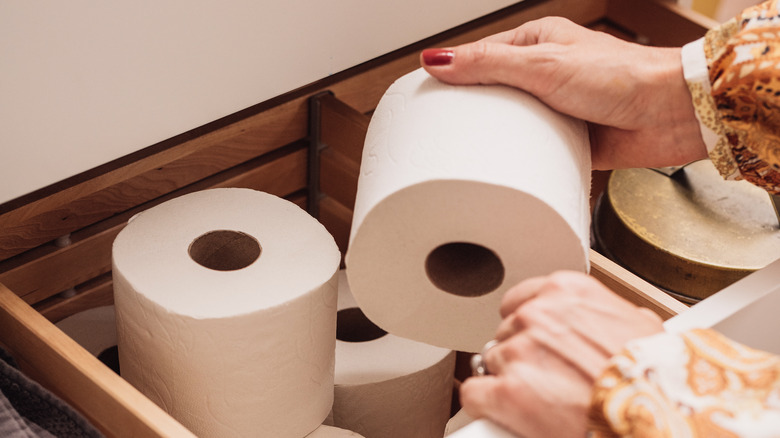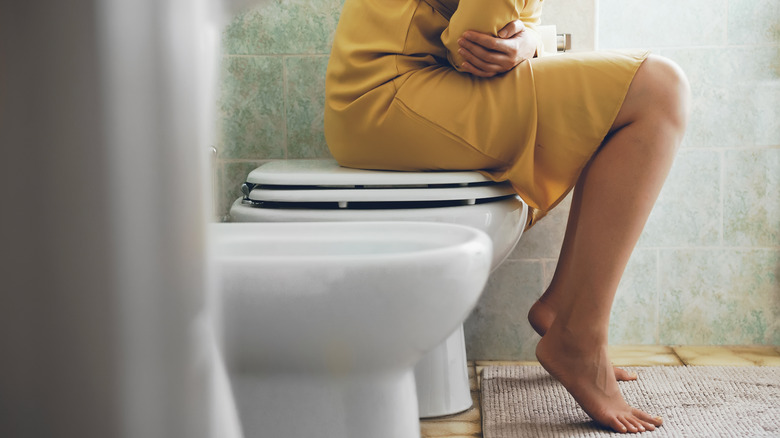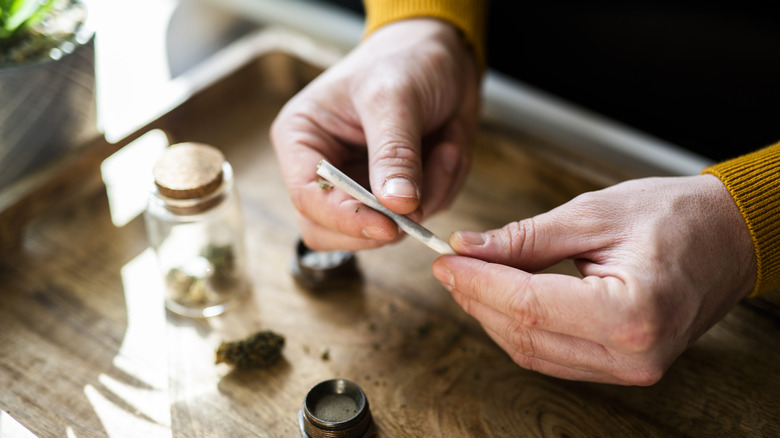What Happens To Your Pee When You Use Marijuana Every Day
Fatigue, slowed reaction time, or a case of the munchies are some of the side effects most commonly associated with marijuana use. What you might not realize, however, is that regular cannabis use may also impact your urinary health.
According to a 2024 study published in the Journal of the American Heart Association (JAHA), out of more than 430,100 adults in the U.S., 4% self-reported using marijuana on a daily basis, most often in the form of smoking. As outlined in a 2017 scientific article published in the journal Urology, researchers found evidence to suggest a link between regular cannabis use and changes in certain urinary proteins. The research team pointed out that such findings may help inform future effective treatment methods for lower urinary tract (LUT) disorders. What's more, some studies have suggested that marijuana use itself may help alleviate the discomfort of LUT issues. While this is one example of how marijuana might benefit our urinary health, alternate research indicates that regular cannabis use may make one more susceptible to developing an overactive bladder (via The American Journal of Medicine).
Regular marijuana use is linked to overactive bladder
Overactive bladder is a chronic disease. People with this condition experience urgent, frequent urination — including waking up to pee throughout the night — a condition known as nocturia (via The American Journal of Medicine). In the study, researchers referenced data from the National Health and Nutrition Examination Survey from the years 2005 to 2018 and found that roughly 24% of Americans regularly used marijuana. Compared to those who did not use cannabis on a regular basis, those who regularly used marijuana were more likely to develop overactive bladder and/or experience more severe cases of the disorder.
Those with overactive bladder experience involuntary muscle contractions within the bladder. Mayo Clinic experts explain that while this function is necessary to expel urine from the body, in cases of overactive bladder, these contractions occur even when minimal amounts of urine are being held in the organ. While the causes of the disorder are not always clear, cases may be related to alternate bladder conditions like bladder stones or may be due to an enlarged prostate, hormonal fluctuations during menopause, or certain neurological conditions.
Marijuana's effect on pee may depend on how much you use
While the research remains somewhat mixed regarding whether regular marijuana use has a positive or negative effect on our pee, perhaps the answer lies in moderation. Psychiatrist Dr. Timmen L. Cermak writes via Psychology Today how marijuana may help relax the muscles in our intestines and bladder through the activation of cannabinoid receptors, but that excess use of the drug over a long period of time may alternatively increase the risk of severe urinary retention or difficulty passing stool. Such was the case for one of Dr. Cermak's patients who had been using marijuana daily for decades.
To help protect against developing an overactive bladder, Mayo Clinic experts suggest limiting alcohol and caffeine, engaging in pelvic floor exercises, and exercising on a regular basis. While cannabis use is often stigmatized, marijuana is legal in certain states and may be medically prescribed to patients with certain health conditions.
If you or anyone you know needs help with addiction issues, help is available. Visit the Substance Abuse and Mental Health Services Administration website or contact SAMHSA's National Helpline at 1-800-662-HELP (4357).



